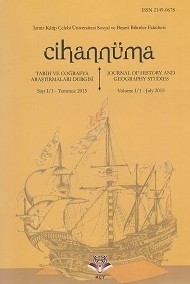Japanese Knowledge about Muslims from the Meiji Restoration to Today: Islamic World in the Context of a Trans-National Space
Japanese Knowledge about Muslims from the Meiji Restoration to Today: Islamic World in the Context of a Trans-National Space
Author(s): Sinan LeventSubject(s): Military history, Political history, Islam studies, Pre-WW I & WW I (1900 -1919)
Published by: İzmir Kâtip Çelebi Üniversitesi, Sosyal ve Beşeri Bilimler Fakültesi
Keywords: Japan; Muslim World; Asia; Knowledge of Islam;
Summary/Abstract: In this study, interaction/relationship of Japanese people with Muslims from Meiji period to the present day will be illustrated. Japan in modern time, which became a regional power, began to have direct relations with Muslims and obtained more accurate information about Islam in a way quite different from its premodern practices. The victory in the 1904-05 the Russo-Japanese War caused Japan to be an imperial power and to expand its sphere of influence in East and Southeast Asia. So, Muslims were assumed as tributary assets of this expansionist policy, especially those in China and Russia until 1945. It is worth noting that a pool of knowledge blended with political arguments against Muslims was formed in Japan before World War II. Japanese, who built the country from scratch after the heavy defeat in World War II, used the prewar data and human resources on Muslims in the Middle East to advance scientific studies and to restore peaceful official diplomatic relations with them in postwar time. However, all religious and political terms used against Muslims such as “Kaikyō” or “Kaikyōto” before and during the war were rejected in this respect due to the war trauma left in state memory.
Journal: Cihannüma: Tarih ve Coğrafya Araştırmaları Dergisi
- Issue Year: VI/2020
- Issue No: 1
- Page Range: 163-176
- Page Count: 14
- Language: English

